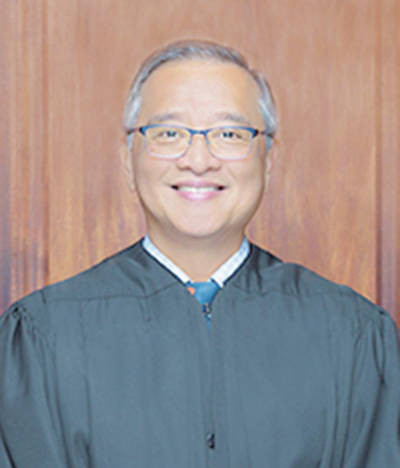Freedom of speech and freedom of the press are foundational to a free society, but these rights are rarely clear, simple and unconditional. At the intersection of any two or more freedoms or rights, there is often a seeming conflict of important social values requiring careful balancing.
The First Amendment of the United States Constitution grants us the right to freely express individual opinions and beliefs, and the liberty to question and criticize the government. Yet, our government has found it prudent to restrict speech that is likely to incite or produce imminent lawless action.
The First Amendment also establishes freedom of the press, another venue through which we can openly express our beliefs. Moreover, a free press serves as a crucial check on government power by giving us a way to monitor and understand government actions.
However, even this freedom has to be balanced with other important individual and societal rights. One clear example is in the courts, where the trial judge is responsible for protecting the defendant’s constitutionally guaranteed rights to due process and a fair trial, along with society’s right to justice through properly conducted judicial proceedings. To ensure these rights, the news media covering hearings are subject to certain rules of the court.
Today’s headlines concerning political incivility, attacks on the media, “fake news,” and cyberbullying provide pointed examples of what happens when we fail to balance free speech and freedom of the press with other rights. Such issues have sparked considerable debate in recent years over the extent and limits of free expression in our country.
This is part of the reason the American Bar Association designated “Free Speech, Free Press, Free Society” as the theme of Law Day 2019.
After 228 years, the words and principles of the First Amendment have not changed, but lawmakers, judges, and citizens continue to struggle with balancing freedom of speech and the press with what is required to sustain a society that respects the essential worth of all individuals.
It is healthy and necessary for us, as a free people, to carry on this important work.
Regardless of the new challenges and circumstances we may face, the rule of law serves as a source of objective guidance that helps us to maintain fairness in our system of government. This is one of the many reasons we celebrate Law Day.
•••
The Honorable Randal G. Valenciano is chief judge of Hawaii’s Fifth Judicial Circuit (Kauai).






Funny how the pictures judge likes to violate people’s civil rights and conspire and collude with attorneys to set outcomes. There’s serious facts about how corrupt the judicial system is on Kauai and the Judge V is part of the problem. Court records prove that he has violated civil rights. You can’t trust a plantation family good ol boy or gal they believe that they aren’t being watched or can’t be touched by the state or Feds. He can’t undo what he did/does.
“However, even this freedom has to be balanced with other important individual and SOCIETAL RIGHTS (?).”
One would think that a judge would have a better understanding of rights. Only individuals act and only INDIVIDUALS have rights. “Society” is a convenient construct to describe and aggregate basically everyone into one set or another. Societies do not have rights…only the individuals within do.
Another thing, judge: your rights do not cost anyone else anything…except that they must honor your rights as you honor theirs. So when you hear dimwits like Bernie Sanders and AOC talk about the “right” to free medical care, free education etc. etc. etc. they display their utter ignorance of what rights really are. “Free” medical care for instance must be paid for by someone other than the recipient of the “free” service. These people are fundamentally and irretrievably ignorant.
Wise up judge,
RG DeSoto
RG DeSoto’s comments are right on the mark. The limitations on Free Speech were recognized by Common law back in 1791 by the authors of the Bill of Rights and they meant what they said. If we agreed with everybody else about everything the First Amendment would be unnecessary. Voices that say things we don’t like are important. The remedy if we disagree is not to silence those voices, but to point out the errors. The urge to silence others is usually because the listener has no effective or intelligent response. I have changed my views many times over what is now a long life but I would not have done so without hearing the other side. Fascist silence others, Americans don’t. Judge, there is no balancing to done.
The few and appropriate limitations on Free Speech were recognized by Common law back in 1791 by the authors of the Bill of Rights and they meant what they said. If we agreed with everybody else about everything the First Amendment would be unnecessary. Voices that say things we don’t like are important. The remedy if we disagree is not to silence those voices, but to point out the errors. The urge to silence others is usually because the listener has no effective or intelligent response. I have changed my views many times over what is now a long life but I would not have done so without hearing the other side. Fascist silence others, Americans don’t. Judge, there is no balancing to done.